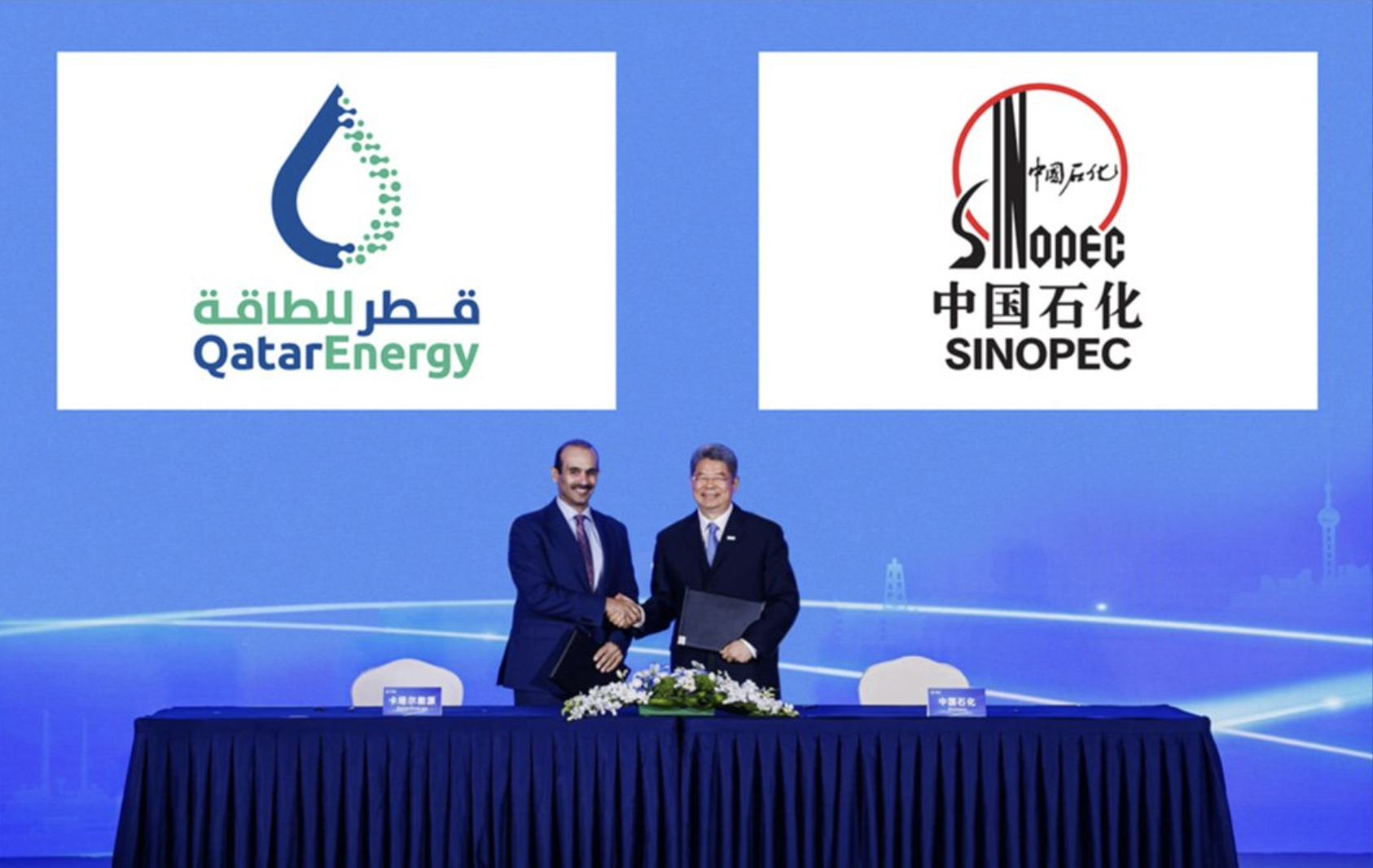Qatar announced a similar 27-year provision with the China National Petroleum Corporation in June
Qatar has finalised a 27-year agreement to supply natural gas to China’s Sinopec, QatarEnergy confirmed on Sunday.
The deal, formalised in Shanghai, will see an annual supply of three million tonnes of gas, marking a sustained commitment between the two nations. The agreement not only ensures a long-term gas supply to Sinopec but also cements the company’s stake in the North Field gas expansion project.
QatarEnergy is set to allot a 5% interest to Sinopec in a new joint venture, North Field South, which promises a six million tonnes per year output in its second phase.”These historic milestones are a testament to the excellent bilateral relations between the People’s Republic of China and the state of Qatar as well as between Sinopec and QatarEnergy,” QatarEnergy said in a statement, underscoring the deal’s diplomatic significance.
QatarEnergy’s historic expansion project, which ceremoniously commenced last month, boasts the world’s most extensive natural gas reserves, stretching across the Gulf and into Iranian territory.
The importance of Qatar’s gas has been magnified amidst Europe’s search for alternatives to Russian energy following the conflict in Ukraine. This shift has heightened the strategic importance of Qatar’s supply to Asian powerhouses like China, Japan, and South Korea.
In April, Sinopec secured a precedent-setting stake in the North Field East, the first phase of the Qatari expansion.
This was preceded by a 2022 agreement that saw Sinopec procure a 27-year supply of four million tonnes of liquified natural gas (LNG) annually from Qatar, a deal that was unparalleled in duration at the time.
The latest deal is part of a series of similar quarter-century commitments Qatar has brokered with global energy conglomerates, including France’s Total, Britain’s Shell, and Italy’s Eni, all secured in recent months.
Qatar announced a similar 27-year provision with the China National Petroleum Corporation in June, and has engaged in partnership deals with American majors ConocoPhillips and ExxonMobil for the expansion project.
As one of the leading LNG producers, rivalled only by the United States, Australia, and Russia, Qatar holds a critical position in the global energy landscape. The North Field, representing roughly 10% of the world’s known natural gas reserves, is at the heart of Qatar’s energy prowess.
Qatar’s expansion of LNG production falls in line with global efforts in cutting emissions, with the Gulf state promoting the gas as a green transitional fuel. The use of LNG also aligns with the Paris agreement, which aims to limit global warming through the reduction of emissions.
“The State of Qatar has firmly supported the role of natural gas as a central component of any energy mix on the road to a realistic energy transition. We are providing the world with the cleanest hydrocarbon source of energy, which enjoys both economic and environmental qualities to support sustainable growth and a better future,” Qatar’s Minister of State for Energy Affairs and President and CEO of QatarEnergy Saad Sherida Al-Kaabi said in a keynote speech at the Sinopec Forum in Shanghai.
“In fact, by 2029, about 40% of all new LNG supplies will be provided by Qatar. Therefore, we believe that a stronger relationship between the world’s largest LNG producer and the world’s largest energy consumer is a natural development of the realities shaping the energy map today.”
The top official also highlighted Doha’s belief in energy transition being one of the most pressing challenges of our time and said more sustainable energy future cannot be achieved in isolation but “requires open cooperation among nations, industries, and stakeholders towards a common goal”.
“It is not just about the environment, but also about the future of energy that touches the lives of every individual on this planet, and transcends borders, economies, and cultures. It is about a reasonable and realistic shift to cleaner alternatives to power our economies, while at the same time balancing energy security, affordability, and sustainability,” he added.







